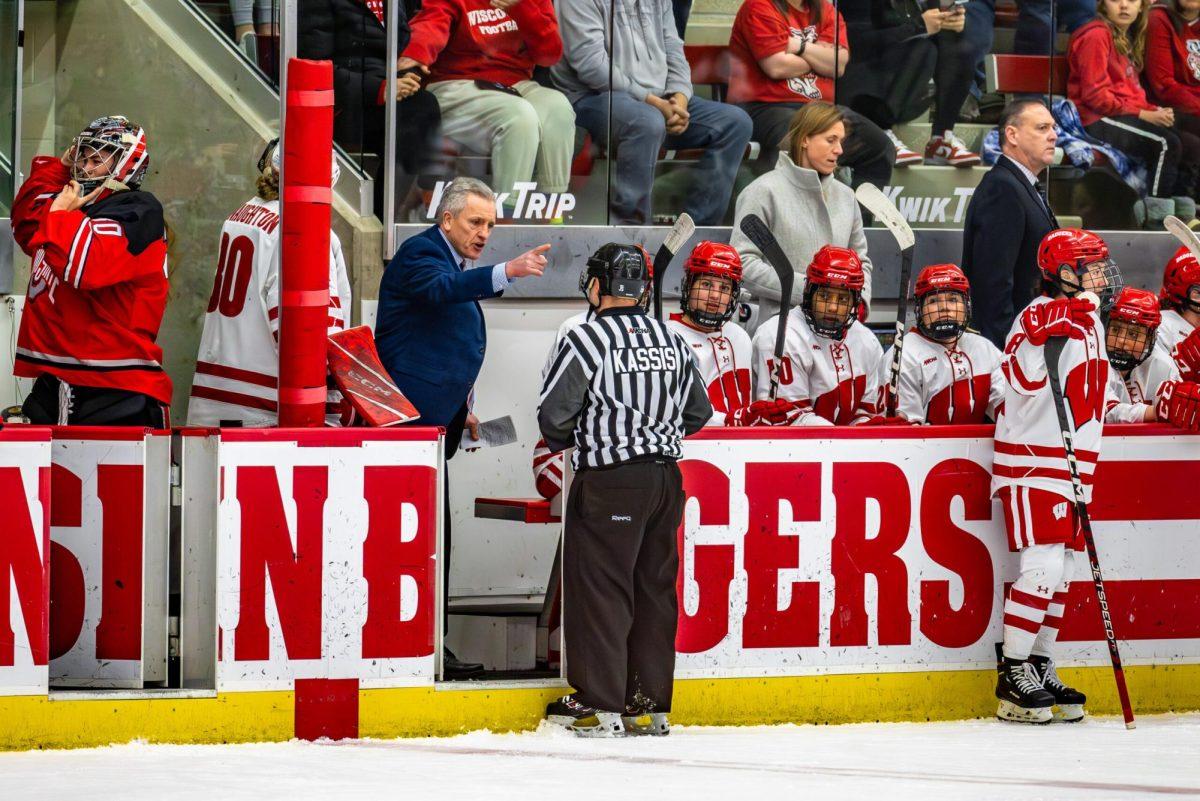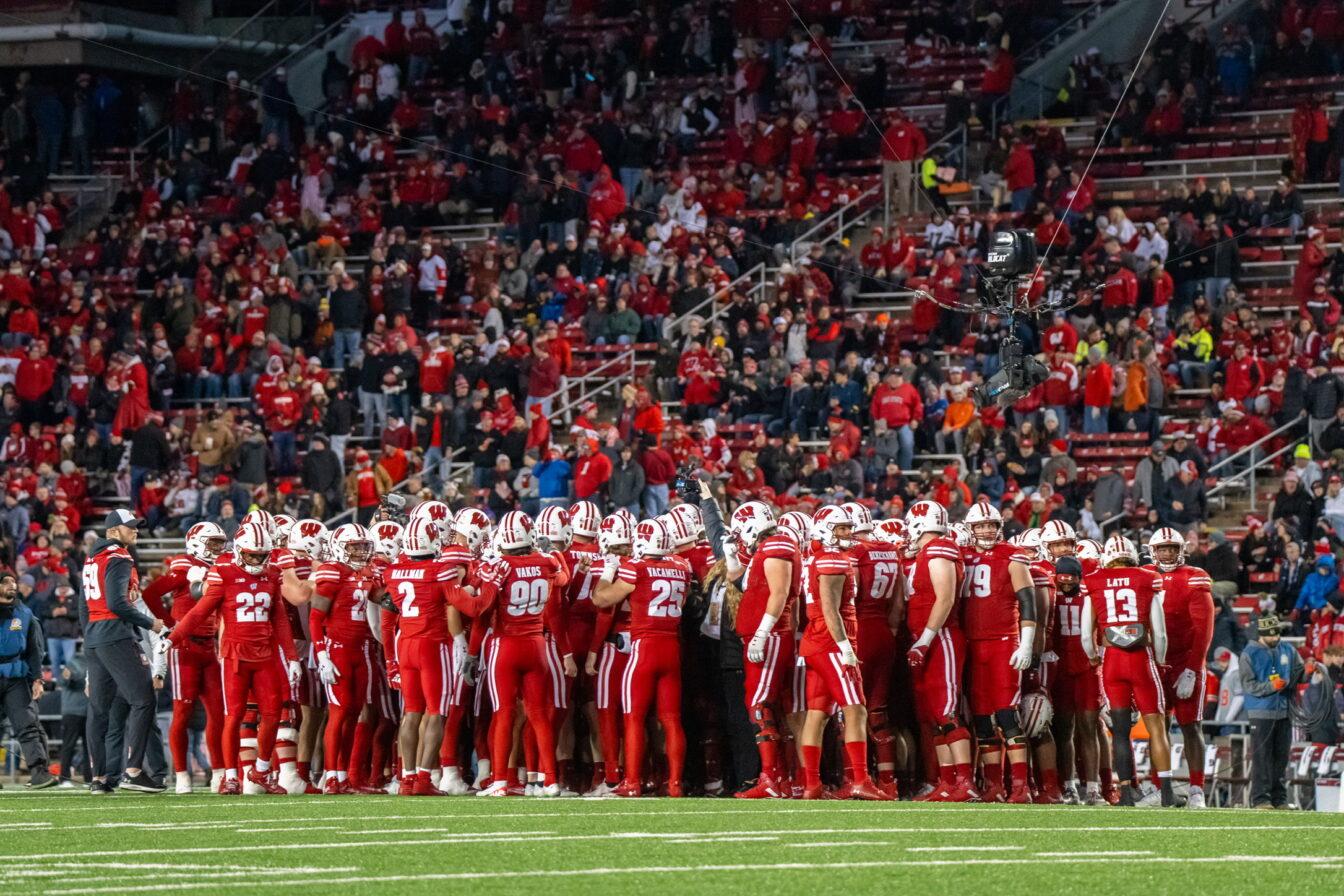1.65.
No, that is not the number of minutes Kevin Gullikson averages on the court. That is the grade point average it takes to remain eligible as a first-semester freshman athlete at UW.
1.65 — how can an athlete stoop below that, especially when the athletic department supplies any athlete with any amount of free tutorial services he or she may need?
Not only does the athletic department supply free tutors to athletes — it also supplies most student-athletes with free books and supplies.
The athletic department also monitors their academic progress through weekly meetings with advisors and progress reports from professors.
So, with all this help, how can an athlete still manage to fail?
"There are many different ways," said former Olympian and UW swimmer Adam Mania, who was ineligible during the spring semester of his freshman year. "Not going to class, obviously, being homesick or not being able to make the transition from high school to college. There were many different obstacles for me. I came from a small town … and making the transition to a school of 40,000 was quite startling.
This contributed to my homesickness. I was quite close to my parents and close to everyone at school," Mania continued. "Being in swimming helped me out a lot because I was grouped with a bunch of people with similar interests. But obviously it's hard to let go of the ones who have been with you since kindergarten."
Being homesick I can understand, but failing still troubles me.
If you took 12 credits, or four three-credit courses, and received the following grades — BC, C, C, D — you would still retain eligibility.
With a GPA as low as 1.65, shouldn't an athlete know he or she is in trouble? There is no way a 1.65 GPA would surprise anyone. Some professors may lack a heart, but most of them are pretty compassionate.
If you take a look at what the average student does every day to survive at UW, there is no way a student-athlete could lose his or her eligibility.
If a student-athlete actually studied every day, met with tutors on a weekly basis, talked to professors, always completed assignments on time and attended the majority of classes, there would be no way he or she could be in an academic crisis.
I would even bet money that Paris Hilton could pull off a 2.0 GPA at UW.
And how could an athlete put his or her team in jeopardy by not studying? Or, better, how could an athlete risk the embarrassment of a publicly known dreadful GPA?
"I think it just hurts them," Mania commented. "I don't think it hurts anyone else. Sure, it's disappointing for the parents or friends, but they will support that person just as long as they know that they are trying. And it only hurt me for a short time. I feel as if it were a blessing in disguise. It turned me around, got myself under control, organized, and I learned a lot from it. I started with a 1.3 GPA and now my cumulative is 3.0."
Mania was able to turn himself around after putting in the extra hours to study. All it took was time.
Athletes put at least 20 hours a week into their sport, which means they cannot live the normal lifestyle that a non-athlete would enjoy here.
I'm not saying we should feel bad for athletes because they devote so much time and energy to their sports. Look at the advantages they could enjoy: free tuition, extra spending money, free clothes, rent money, food money, travel and the thrill of doing what they do best.
Since a student-athlete spends the majority of time dealing with extra pressures that many non-athletes may not understand, they should give up the extra things that many regular students enjoy — meaning an athlete should probably pass on a game of Halo after practice and journey to the library instead.
I know playing games is fun, but I would assume athletes would rather play their sport with their teammates instead.
It always sucks to give up a fun activity to study, but it is a small price to pay to help yourself and your teammates down the road.
For Mania, all he needed was a little help with organization to turn his GPA around.
"One of the things that I did was to get a mentor to help me with organization of my materials," he said. "Being organized and knowing what was coming helped me prepare more for school. I also got a tutor, who was able to work with me one on one. Coming from a school with 15 kids in every class to a lecture hall of 300, you don't feel like you really know anything. The tutor helped me a lot with my schoolwork and helped me turn around.
I started taking classes I was actually interested in rather than classes that were required for a direction that I didn't even know why I was pursuing," Mania added. "I started studying something that I liked and [something in which] I was actually interested. Plus, I became a lot closer with the people I was around and became better friends with them."














